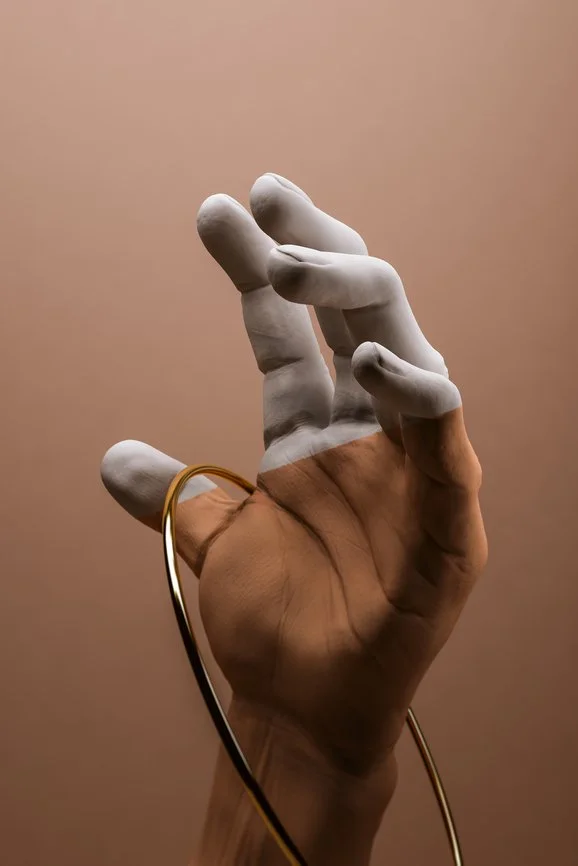
SKIN TONE BIAS
[Image: A two-toned hand—with the top half painted in gray and the bottom half painted in bronze—is stretching upward. The thumb catches a thin gold hoop that hangs loosely towards the wrist. This artistic image is set against a light brown background. Centered white text reads, “Skin Tone Bias.”Photograph by Marcos Osorio.]
Oxford Languages and Google define bias as “prejudice in favor of or against one thing, person, or group compared with another, usually in a way considered to be unfair.”
I define skin tone bias as favoritism toward a perceived “superior” complexion, or prejudice against a perceived “inferior” complexion.
This then leads to unfair and unjust outcomes for persons associated with the “low-ranking” complexion.
For the purposes of this platform, skin tone bias is also being defined as the propensity to give preferential treatment to those birthed with a beige skin tone, based on a firm yet unbiblical belief that those birthed with a brown skin tone are less deserving of dignity, respect, safety and opportunities to thrive—be it socially, relationally, economically, environmentally and/or psychologically.
This preferential treatment negatively guides human thought and behavior on a global scale, which then contributes to systemic inequality and injustice that impact darker-skinned persons, while benefiting the “high-ranking” or influential complexion across the socio-economic board.
According to the ABA Commission on Disability Rights, “Most of us believe that we are fair and equitable, free of prejudice, stereotypes, and biases, and evaluate others based on objective facts.
However, to our surprise, all of us, even the most egalitarian, have implicit biases—also referred to as unconscious biases or implicit social cognition…[that] cause us to have attitudes about and preferences for people based on characteristics such as age, gender, race, ethnicity, sexual orientation, disability, and religion.
…Notably, they influence our judgment, decisions and actions, both positively and negatively, and can predict our behavior, and ultimately may lead to discriminatory behaviors.”
The widely held attitude that individuals born with a brown skin tone are inherently inferior image-bearers has paved the way for (self)segregation; discriminatory behavior and policies; social disadvantages (e.g., being automatically feared or perceived as dangerous due to a darker complexion); health disparities; economic exclusion; automatic hatred and hostility; plus, apathy with regards to violence that seeks to humiliate and/or destroy children, teenagers and/or adults bearing brown complexions.
Skin tone bias has led to a rise of individuals—regardless of faith affiliation—who are committed to raising Hell on Earth rather than ushering Heaven on Earth.
I believe a percentage of professing Christians—regardless of hue—are called to examine their skin tone bias (especially beige-skinned Christians who believe in Jesus’ mission on this precarious planet), and challenge the Gospel of Segregation plus the fallacy of flesh-based better-ness in all aspects of their lives.